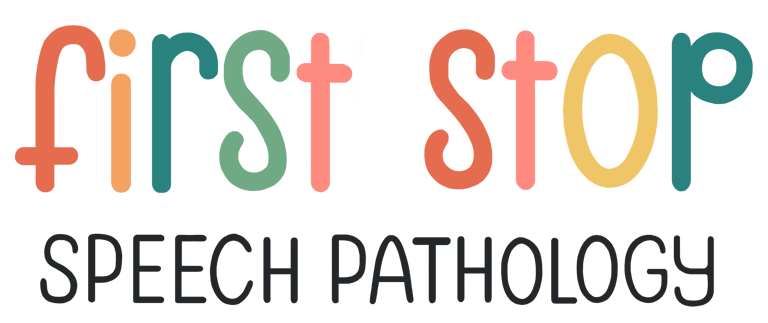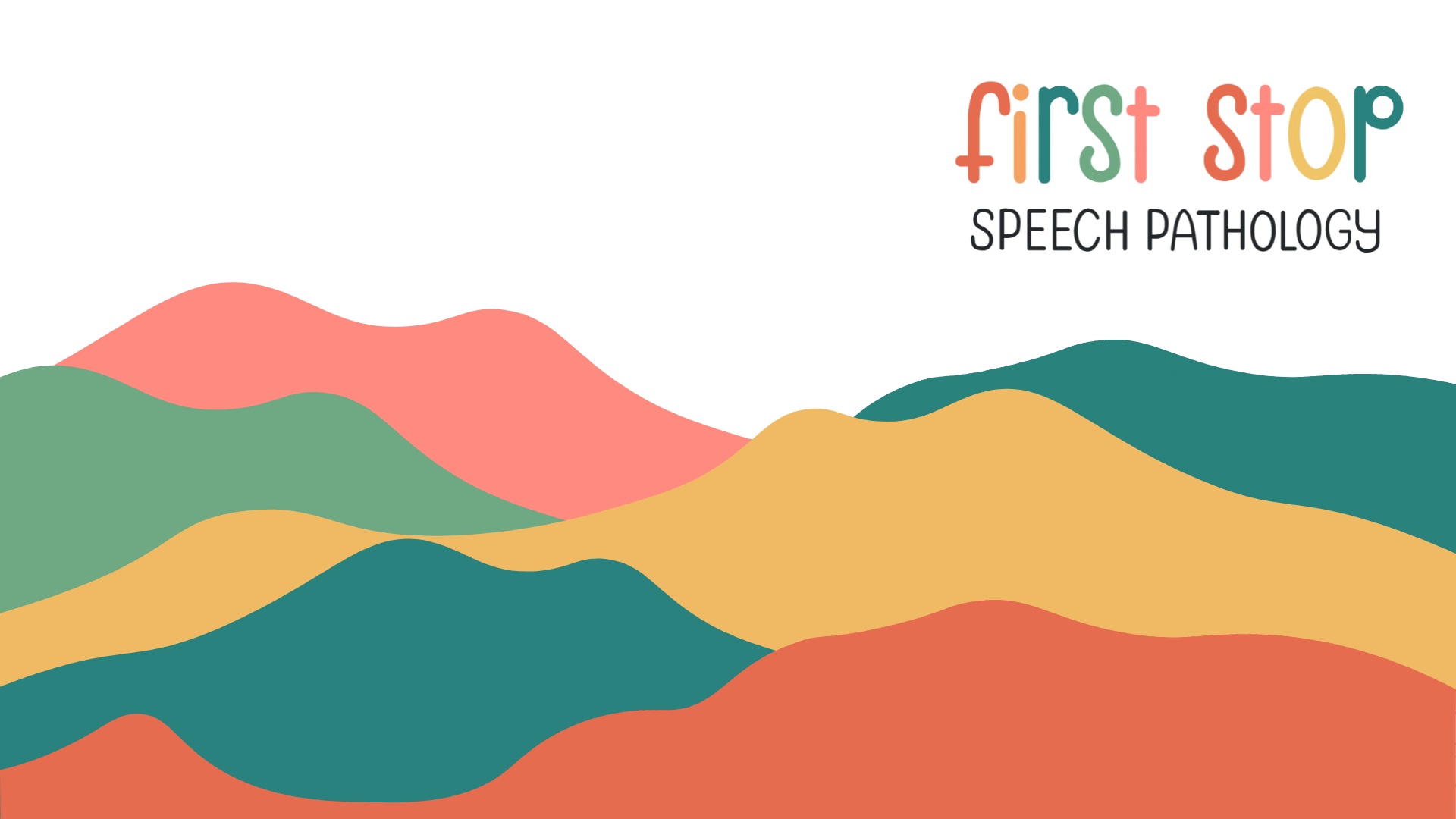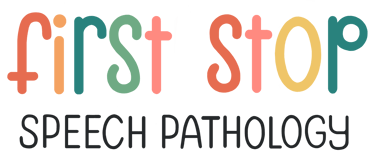Our services
At First Stop Speech Pathology, we support children and young people to communicate, participate and feel confident in everyday life. We provide mobile and telehealth speech pathology services for children aged 0–18 years in Brisbane's southside.
We are family-centred, neurodiversity-affirming and evidence-based. You do not need a diagnosis to see us.
Who we see
We work with children and young people who:
are late to talk or have limited words
are hard to understand
have trouble understanding instructions or questions
find it difficult to put words and sentences together
use or are exploring Augmentative and Alternative Communication (AAC), such as iPad-based systems, communication books or key word sign
have differences in social communication, play or interaction
have developmental conditions such as autism, developmental language disorder, intellectual disability or ADHD
have complex communication needs and need support to communicate in more than one way
If you are unsure whether speech pathology is appropriate, you can contact us to discuss your child and we can advise whether our service is likely to be a good fit.
What we help with
Speech sounds and clarity
We support children who are difficult to understand or whose speech sounds different from what is expected for their age. This includes:
unclear speech that family and others struggle to understand
sound errors like saying “tat” for “cat” or “wabbit” for “rabbit”
speech sound disorders such as phonological delay or disorder
suspected childhood apraxia of speech
Therapy focuses on helping your child be understood by the people who matter to them, in ways that feel achievable and respectful.
Language - understanding and using words and sentences
We support children who have difficulty:
understanding words, questions and instructions
following routines that rely on spoken language
learning and using new vocabulary
putting words together into longer sentences
telling stories or explaining what happened
We work on both receptive language (understanding) and expressive language (talking), using activities that are meaningful for your child at home, kindy or school.
Early communication (0–3 years)
We provide early intervention for infants and toddlers who are:
not yet using many words
mostly using gestures or sounds to communicate
finding it hard to copy actions, sounds or words
not pointing, showing or sharing interests as expected
Sessions focus on coaching parents and carers, building early communication skills through everyday routines and play, and supporting the child to connect in the ways that work best for them.
AAC and alternative communication
We see many children with complex communication needs who use, or may benefit from, Augmentative and Alternative Communication (AAC), such as:
iPad-based systems like TD Snap
communication books and boards
key word sign and gesture
visual supports and schedules
We can support with:
AAC assessment and trials
set-up and customisation of systems
training for families, support workers and educators
ongoing therapy that integrates AAC into daily life
Our goal is to build a robust, reliable communication system so the child can express themselves across settings, not only in therapy.
Social communication and play
We support children who find social interaction challenging, including those who:
prefer to play alone or find group play difficult
struggle with turn-taking, sharing attention or reading social cues
have trouble understanding joking, sarcasm or indirect language
want to connect but are unsure how
Intervention is tailored to the child’s profile, interests and goals, and may focus on play skills, self-advocacy, understanding others and building comfortable ways of connecting.
Our process
It's easy to get started with us. Please complete the online referral form, or simply give us a call or send an email.
Once we have the referral information, we will work with you to organise an initial appointment.
Session one is an information gathering session. The therapist will be asking lots of questions to get to know the child better, explain what therapy may look like, and go through the service agreement.
The next few sessions are all about building a connection with the child, assessment (informal and/or formal) and working with you to develop therapy goals.
If needed, the therapist will create a plan and book in regular appointments that work for you.
1. Get in touch
2. schedule a session
3. first session
4. collaboration & goal setting
5. ongoing support
Our fees and funding options
NDIS:
Our fees are in line with the NDIS 2023 pricing guidelines.
First Stop Speech Pathology is currently servicing self-managed and plan-managed participants.
MEDICARE REBATES:
If you are not eligible for the NDIS, you may be able to get a GP referral to cover a portion of the cost of therapy.
Chronic Disease Management Plan (CDM): For children with a "chronic condition" (including communication delay/disorder). Medicare rebates are available for a maximum of five allied health services per client, per calendar year. Referral must be made by a GP.
PRIVATE PAYING:
Please contact us if you would like more information about our fee structure.
PRE-NDIS PACKAGE
First Stop Speech Pathology can support your child to access the NDIS if eligible with a pre-NDIS assessment and report package. Please contact us if you would like to know more about this service.



